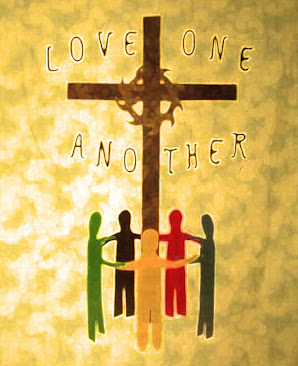In our Church, I wonder how many people take the time to look on the back of the Worship Bulletin each Sunday to read the short story presented there. One recent bulletin had an interesting article entitled “Fable of the Porcupine.” I would like to share this article that was attributed to an Anonymous author. Here it is:
“It was the coldest winter ever. Many animals died because of the cold. The porcupines, realizing the situation, decided to group together to keep warm. This way they covered and protected themselves.”
But the quills of each one wounded their closest companions. After a while, they decided to distance themselves one from the other and they began to die, alone and frozen. So they had to make a choice: Either accept the quills of their companions or disappear from the earth.
Wisely they decided to go back to being together. They learned to live with the little wounds caused by the close relationship with their companions in order to receive the warmth that came from the others. This way they were able to survive.
The best relationships are not the ones that bring together perfect people, but when each individual learns to live with the imperfections of others, and can admire and encourage the other person’s good qualities.”
I think it is safe to say that, in most people, we can find more good than bad. However, according to the “Fable of the Porcupine,” we realize that sometimes we allow the little, nit-picky nuances, habits, personality traits and quirks of others to be the polarizing differences that cause us to not only distance ourselves from them, but to dislike them enough to avoid them and to speak critically and slanderously of them.
Rather, we should be “Ephesians 4:32” people who refuse to let these differences be grounds for distancing ourselves. Ephesians 4:32, “Instead, be kind to each other, tenderhearted, forgiving one another, just as God through Christ has forgiven you.
One who is kind is charitable and takes the initiative to respond generously to others’ needs. Kindness is love in practical action! Kindness is “the disposition of the mind which thinks as much of its neighbor’s affairs as it does its own” (William Barclay).
One who is tenderhearted is noted for being compassionate. Compassion is genuine sensitivity and heartfelt sympathy for the needs of others. A tenderhearted person is one who has a heart filled with and prompted by sympathy and love for others.
The attribute of tenderhearted love is what prompts 1 Corinthians 13:1-2, “If I could speak all the languages of earth and of angels, but didn’t love others, I would only be a noisy gong or a clanging cymbal. If I had the gift of prophecy, and if I understood all of God’s secret plans and possessed all knowledge, and if I had such faith that I could move mountains, but didn’t love others, I would be nothing.” We are nothing without love and we become nothing if we cannot be compassionate towards others.
The third attribute is what helps us when there are those who are hard to like and difficult to love. This is the healing action of forgiveness. Just like the fable of the porcupines, “They learned to live with the little wounds caused by the close relationship with their companions in order to receive the warmth that came from the others. This way they were able to survive.”
The word for “forgiving one another” implies “dealing graciously” with others. It is more than just being sorry, or being remorseful for our actions. When we deal graciously with others, we realize it is more than just forgiving others, but graciously loving all aspects of who they are.
When we realize this, we soon understand that this includes all the habits that annoy us. It is the strength to deal with their sense of humor we don’t think is all that funny. Even if they have different tastes, interests and opinions that are the exact opposite of our own we can, through a forgiving heart (along with kindness and tenderheartedness), grow into loving them and finding more than one way to get along with them.
Yes, through the indwelling Holy Spirit, we can become “people of Ephesians 4:32!” That’s why I’ll close with the words of Jesus in John 13:35, “By this everyone will know that you are my disciples, if you love one another.”
